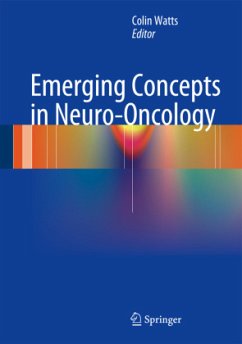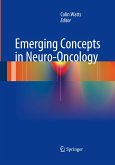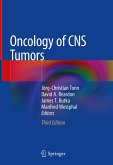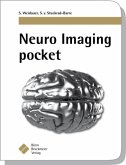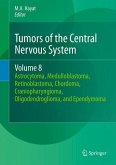Having been a fairly dormant specialty for many decades, in recent years there has been a remarkable increase in activity in Neuro-oncology from basic science through to the clinics. Reflecting this there have been considerable advancements in the understanding of the biology of CNS malignancies which have infirmed the development of many novel and successful therapies. This work aims to bring together the scattered literature on the new concepts in neuro-oncology for the benefit of those in the field. The book moves from concepts in the scientific basis of neuro-oncology, through to modelling techniques and finishing on the translation into clinical practice. Neuro-Oncology is one of the most exciting and rapidly evolving areas of oncology. In recent years there has been a remarkable increase in activity in the field, from basic science through to the clinic. This is reflected by advances in the understanding of the biology of CNS malignancies which have informed the developmentof novel and successful therapies. In this environment it is essential to facilitate communication and understanding of new ideas and concepts.
Emerging Concepts in Neuro-oncology is written with this in mind: to encourage collaboration across traditional boundaries and promote translational research for patient benefit. The book moves from concepts in the scientific basis of neuro-oncology in part one, through models of brain cancer in part two, to emerging concepts in clinical practice in part three, with a focus on translational research.
This book will be an essential read for neuroscience researchers, cancer researchers, neurosurgeons and clinical oncologists as well as anyone with an interest in this exciting, dynamic field.
Emerging Concepts in Neuro-oncology is written with this in mind: to encourage collaboration across traditional boundaries and promote translational research for patient benefit. The book moves from concepts in the scientific basis of neuro-oncology in part one, through models of brain cancer in part two, to emerging concepts in clinical practice in part three, with a focus on translational research.
This book will be an essential read for neuroscience researchers, cancer researchers, neurosurgeons and clinical oncologists as well as anyone with an interest in this exciting, dynamic field.
From the reviews:
"In this book, the authors aim to comprehensibly describe new findings, as well as established facts, and to discuss their influence on current and possible future therapies. ... this is a well written book on current advances in the field of neuro-oncology. It is worth reading for basic researchers working in the field of neuro-oncology, as well as neuro-oncologists and neurosurgeons." (Anne-Katrin Hickmann, Innovative Neurosurgery, Vol. 1 (1), 2013)
"In this book, the authors aim to comprehensibly describe new findings, as well as established facts, and to discuss their influence on current and possible future therapies. ... this is a well written book on current advances in the field of neuro-oncology. It is worth reading for basic researchers working in the field of neuro-oncology, as well as neuro-oncologists and neurosurgeons." (Anne-Katrin Hickmann, Innovative Neurosurgery, Vol. 1 (1), 2013)
From the book reviews:
"This is an up to date reference on the surgical, chemotherapy, and radiosurgery of gliomas, both low and high grade neoplasms. ... I highly recommend this book for neurosurgeons, oncologists, radiation researchers, fellows and students." (Joseph J. Grenier, Amazon.com, October, 2014)
"In this book, the authors aim to comprehensibly describe new findings, as well as established facts, and to discuss their influence on current and possible future therapies. ... this is a well written book on current advances in the field of neuro-oncology. It is worth reading for basic researchers working in the field of neuro-oncology, as well as neuro-oncologists and neurosurgeons." (Anne-Katrin Hickmann, Innovative Neurosurgery, Vol. 1 (1), 2013)
"This is an up to date reference on the surgical, chemotherapy, and radiosurgery of gliomas, both low and high grade neoplasms. ... I highly recommend this book for neurosurgeons, oncologists, radiation researchers, fellows and students." (Joseph J. Grenier, Amazon.com, October, 2014)
"In this book, the authors aim to comprehensibly describe new findings, as well as established facts, and to discuss their influence on current and possible future therapies. ... this is a well written book on current advances in the field of neuro-oncology. It is worth reading for basic researchers working in the field of neuro-oncology, as well as neuro-oncologists and neurosurgeons." (Anne-Katrin Hickmann, Innovative Neurosurgery, Vol. 1 (1), 2013)

